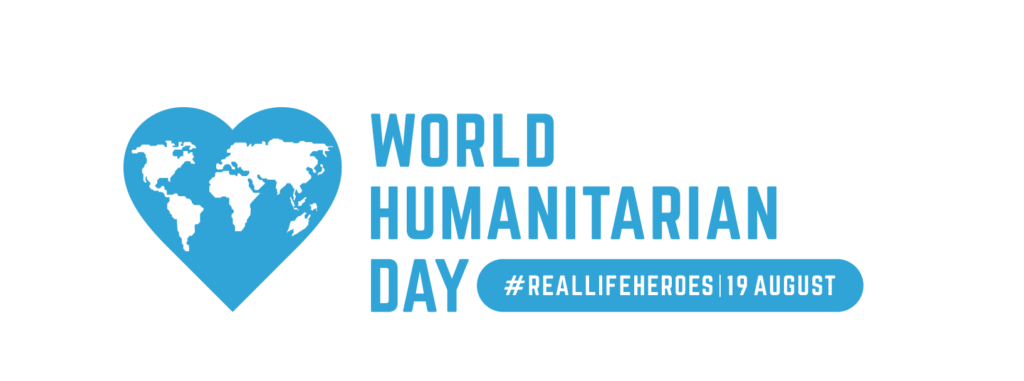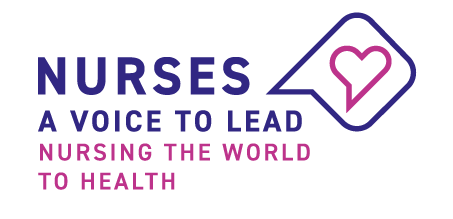World Humanitarian Day: Providing fundamental healthcare skills training in the Central African Republic

On 19 August, we celebrate World Humanitarian Day, to pay tribute to aid workers who risk their lives in humanitarian service, and to rally support for people affected by crises around the world. What better time than to focus on the work of Médecins Sans Frontières (MSF) which brings medical humanitarian assistance to victims of conflict, natural disasters, epidemics or healthcare exclusion.
Today’s case study focuses on MSF training for nurses in the Central African Republic (CAR). #RealLifeHeroes
The health status of the CAR has degraded over the past years, following the different crises the country has undergone since 2012. According to WHO, the weakening of the health system, including by pillaging and destroying facilities, the profound degradation of the population’s living conditions and the spreading of major killer epidemics, all contribute to very high morbidity and neonatal, child and maternal mortality throughout the country.
The population of the CAR suffers from a low education level overall, and many health workers do not have the formal training that corresponds to the activities they perform. This all contributes to a clear lack of connection between the learned theory – for those who have benefitted from initial training – and the actual care delivered to patients.
MSF is running hospital nursing learning initiatives in low-income countries that face significant shortages of qualified nursing staff. The lack of qualified staff leads inevitably to sub-optimal or inappropriate patient care, with a tendency to systematised care, rather than analysis and case-by-case reflection. The objective of the programme is to improve the quality of care in all participating hospitals through significant reinforcement of the competencies of resident nursing staff.
The MSF programme targets all staff members carrying out nursing and/or midwifery care in the health structures supported by MSF in the Central African Republic.
On the continuous education front for the health sector, the main needs are didactical material, appropriate methodologies for professional adults on their workplace, introducing new technologies and learning support adapted to the needs of each learner.
The key activities of the programme are intended to develop an up-to-date basic nursing curriculum, based on an internationally recommended nursing framework; create and use innovative learning tools; assess the initial level of all participants/learner and reconduct assessment at the end; identify and train training facilitators in adult learning, the content of the curriculum, and on methodologies to transmit this on-the-job and through bedside teaching; allow the learners to be at the centre of their learning, by introducing a learning management tool that is available on tablet computers and smartphones; mentor these training facilitators in their learning and transmitting activities on a regular basis; refresh on a regular basis, and introduce new training methodologies, including learning by simulation; and develop tools and opportunities to improve clinical supervision skills among nursing and midwifery supervisors.
The entire programme is planned to run up to December 2021 and cover approximately 500 nursing staff in 13 hospitals.
The MSF Academy aims to instore a learning culture in the various projects: in the health sector, it is important to spark the curiosity of the health staff to motivate them to progress and stay connected to what is new and innovative, so that they can stay up-to-date with good practices.
Nursing is a universal profession and no health care services of quality can exist without investing in good quality continuous training for nursing staff. This is also the case in crisis-affected countries such as the Central African Republic, and this programme shows their need and the feasibility to have an impact on nursing care in war-affected countries.
Nurses play a central role in the success of this programme, being both the vehicle of the programme and the direct beneficiaries. This creates motivation among the nursing staff, providing them with confidence in their delivery of care, and it enables nurses to become more autonomous by understanding the knowledge underpinning their practice.
These continuous training activities must be integrated into the daily activities of all health services. This implies ownership from the project and hospital team at all levels that goes beyond mere overall support, but also translates into concrete and daily acknowledgement and facilitation, to really promote the learning process.
The curriculum in basic nursing competencies has been developed as per the national academic curriculum of the first year of nursing studies. The content is based on the MSF nursing practice framework using innovative competency-based teaching methods and tools, which are interactive and adapted to adult learning and bedside training.
Several key staff members at each project site are being trained to facilitate and transmit the different learning units, each to an average of four other colleagues. They will be supported in this role by clinical mentors from the MSF Academy, who will travel between the different projects. This process of training and cascading the course content will continue throughout 2020.
Key lessons learned from this experience include that:
- It is essential that there is ownership at all levels of the hierarchy of the health structure in which the continuous training programme will be rolled out; this should be as much at the political/principal level as in practice, and translated into the daily management of activities.
- In unstable contexts, it is important to have an implementation model that would allow for enough flexibility and autonomy in the rolling out of the learning activities.
- It is essential to adapt the approach and the content of the curriculum to the level of the learners/target audience.
- It is sometimes more sustainable to start slowly, to later adapt the implementation model to the realities of the context and allow for the creation of a solid base to the programme.
- The success of such programmes is made up of numerous little daily achievements. Changing daily habits and practices takes time.

